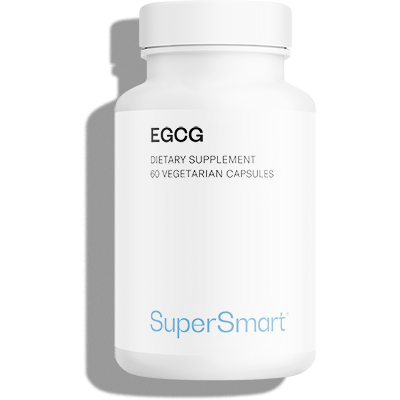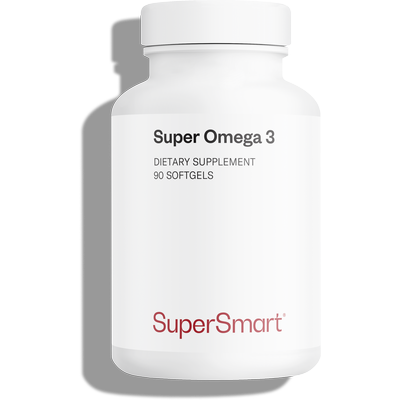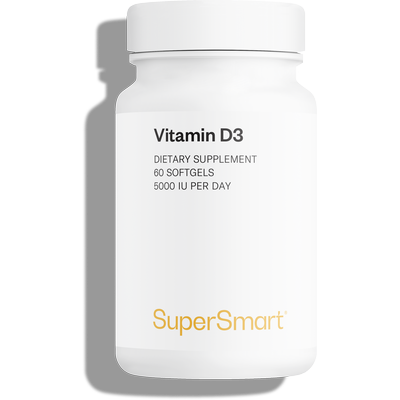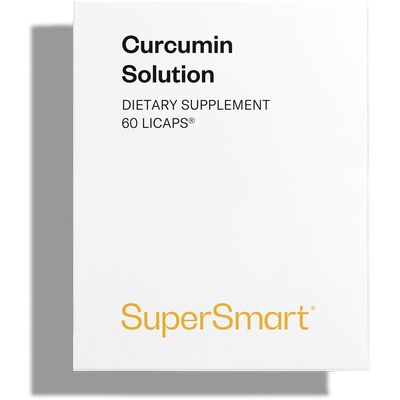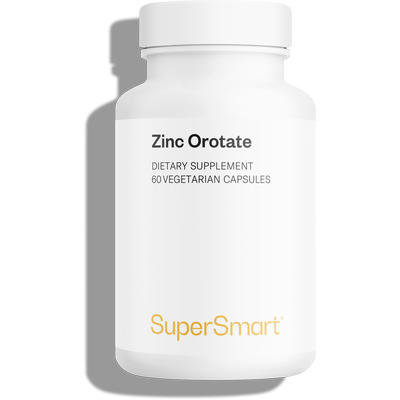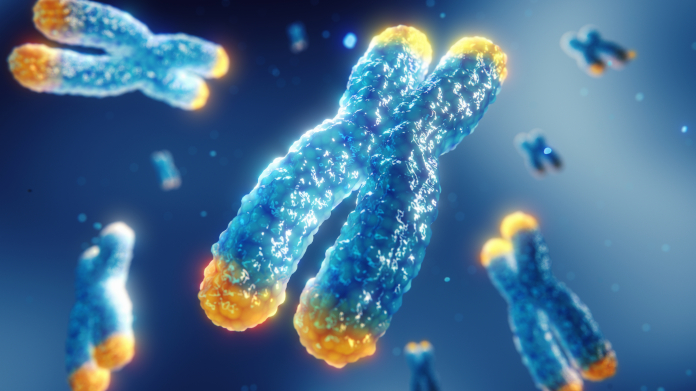The 'nutrigenomics' revolution: eating in a way that influences your genes
What you eat can change the expression of your genes. This is the subject of an innovative scientific discipline called nutrigenomics. Discover how nutrigenomics could revolutionise the way you eat to optimise your health.

Nutrigenomics: what is it all about?
Nutrigenomics is a scientific discipline that studies how nutrition influences gene expression.
More broadly, it analyses the interactions between nutrients and the genome in order to understand their effects on health.
Since the 2000s, the scientific community has highlighted the fact that certain nutrients can modulate the expression of certain genes involved in metabolism, inflammation and longevity.
Could consuming a particular nutrient help, for example, to reduce weight gain or slow down the ageing process?
Note: do not confuse nutrigenomics with nutrigenetics, a closely related discipline that studies how our genes influence our response to nutrients.
The rise of nutrigenomics and its challenges
Nutrigenomics has enjoyed a boom in recent years.
Sarah Dognin, a doctor of pharmacy and nutritionist, is using this new knowledge to propose a personalised diet based on a 'body audit'.
In particular, she asserts that gene expression is not set in stone and that diet plays a key role in the activation of certain genes linked to pathologies: "There are genes which, if activated, favour certain pathologies, such as BRCA1 or 2 for breast cancer." (1)
Thibault Sutter, a doctor of physiology, states that "nutrigenomics offers considerable potential for increasing longevity." (2)
Several start-ups, such as GlicanAge and 24Genetics, are now offering epigenetic tests that can be carried out at home.
These analyses should make it possible to assess the impact of diet on gene expression and adapt diet accordingly, paving the way for a personalised approach to nutrition based on nutrigenomics.
However, home epigenetic testing is not authorised everywhere, as regulations vary from country to country.
How do certain nutrients influence gene expression?
Some nutrients modulate gene expression through epigenetic mechanisms, which reversibly modify gene activity without changing the DNA sequence.
Examples include:
- DNA methylation, a process that involves the addition of methyl groups (-CH₃) mainly on the cytosines of CpG sequences;
- the modification of histones, proteins that influence DNA compaction; or
- the regulation of microRNAs, which modulate the translation of messenger RNAs into proteins.
These epigenetic mechanisms influence gene expression by altering the accessibility of DNA to the transcriptional machinery and influencing the production of the corresponding proteins.
What nutrients and food supplements can positively influence gene expression?
Here is a list of nutrients, also available in the form of food supplements, that could have a positive effect on gene expression:
- Omega-3 fatty acids (EPA and DHA), found in particular in oily fish and vegetable oils, are being studied for their potential ability to modulate gene expression, particularly in pathways linked to inflammation and metabolism (you'll find large quantities of omega-3 in the Super Omega 3 supplement) (3).
- Vitamin D, obtained from certain fish and dairy products, appears to have a direct influence on the expression of numerous genes linked to immunity, calcium regulation and cell function (consider Vitamin D3 5000 IU for optimum intake) (4).
- Sulforaphane, found in Broccoli and other cruciferous vegetables, is thought to activate the transcription factor Nrf2, which is crucial in regulating the genes involved in detoxification and antioxidation (see Broccoli Sulforaphane Glucosinolate) (5).
- Vine resveratrol is being studied for its action on certain genetic pathways involved in longevity and protection against oxidative stress (try Resveratrol) (6).
- Curcumin from turmeric appears to have the ability to influence the expression of genes linked to inflammation and cellular ageing via the NF-κB pathway (opt for Curcumin Solution for optimal assimilation of curcumin) (7).
- Epigallocatechin gallate (EGCG) in green tea could regulate the genes involved in metabolism and inflammation by activating AMPK and inhibiting mTOR (find out more about EGCG) (8).
- Vitamin B6 (present in meat, fish, green vegetables), B9 (green leafy vegetables, legumes) and B12 (meat, fish, dairy products) are involved in DNA methylation, a key process in the regulation of gene expression(Coenzymated B Formula can help you maintain good levels of B vitamins) (9).
- Zinc, found in red meat, seafood and nuts, is thought to be essential for the activation of certain proteins regulating the expression of genes involved in immunity and cellular stress (try Zinc Orotate, a highly bioavailable zinc supplement) (10).
SUPERSMART ADVICE
References
- https://www.ladn.eu/tech-a-suivre/nutrigenomique-nutrigenetique-doit-on-manger-selon-son-adn-pour-vieillir-en-pleine-forme/
- https://www.ladn.eu/tech-a-suivre/nutrigenomique-nutrigenetique-doit-on-manger-selon-son-adn-pour-vieillir-en-pleine-forme/
- Zhu X, Meyers A, Long D, Ingram B, Liu T, Yoza BK, Vachharajani V, McCall CE. Frontline Science: Monocytes sequentially rewire metabolism and bioenergetics during an acute inflammatory response. J Leukoc Biol. 2019 Feb;105(2):215-228. doi: 10.1002/JLB.3HI0918-373R. Epub 2019 Jan 11. PMID: 30633362; PMCID: PMC6466628.
- Aranow C. Vitamin D and the immune system. J Investig Med. 2011 Aug;59(6):881-6. doi: 10.2310/JIM.0b013e31821b8755. PMID: 21527855; PMCID: PMC3166406.
- Houghton CA, Fassett RG, Coombes JS. Sulforaphane and Other Nutrigenomic Nrf2 Activators: Can the Clinician's Expectation Be Matched by the Reality? Oxid Med Cell Longev. 2016;2016:7857186. doi: 10.1155/2016/7857186. Epub 2016 Jan 6. PMID: 26881038; PMCID: PMC4736808.
- Cosín-Tomàs M, Senserrich J, Arumí-Planas M, Alquézar C, Pallàs M, Martín-Requero Á, Suñol C, Kaliman P, Sanfeliu C. Role of Resveratrol and Selenium on Oxidative Stress and Expression of Antioxidant and Anti-Aging Genes in Immortalized Lymphocytes from Alzheimer's Disease Patients. Nutrients. 2019 Jul 31;11(8):1764. doi: 10.3390/nu11081764. PMID: 31370365; PMCID: PMC6723840.
- FEBS Open Bio. 2023 Jun 28;13(Suppl 2):61–258. doi: 10.1002/2211-5463.13646. PMCID: PMC10300527.
- Holczer M, Besze B, Zámbó V, Csala M, Bánhegyi G, Kapuy O. Epigallocatechin-3-Gallate (EGCG) Promotes Autophagy-Dependent Survival via Influencing the Balance of mTOR-AMPK Pathways upon Endoplasmic Reticulum Stress. Oxid Med Cell Longev. 2018 Jan 31;2018:6721530. doi: 10.1155/2018/6721530. PMID: 29636854; PMCID: PMC5831959.
- Crider KS, Yang TP, Berry RJ, Bailey LB. Folate and DNA methylation: a review of molecular mechanisms and the evidence for folate's role. Adv Nutr. 2012 Jan;3(1):21-38. doi: 10.3945/an.111.000992. Epub 2012 Jan 5. PMID: 22332098; PMCID: PMC3262611.
- Cousins RJ. A role of zinc in the regulation of gene expression. Proc Nutr Soc. 1998 May;57(2):307-11. doi: 10.1079/pns19980045. PMID: 9656334.
Keywords
64 Days
Very happy with the order and the…
Very happy with the order and the prompt team's response to an identified issue with my order.
KUQI Fatmir
71 Days
15 + years as a customer
I have been using their products for over 15 years as I find both the quality and pricing excellent.
Del Chandler
73 Days
Good quick delivery
Good quick delivery
Timothy O Shea
74 Days
Good service
Good communication following order. Product came within the time frame and was well packaged. The only confusing thing I found was in checking out. For some reason it is not clear how to do so and the current system should be improved.
Joe O Leary
83 Days
Simple and fast.
Simple and fast.
Nina
84 Days
Great product was definitely what is…
Great product was definitely what is says and arrived on without issue
customer
90 Days
I love reading those product facts on…
I love reading those product facts on Supersmart.com. Effective health products making permanent changes to my blood-work results and testes. However, I also have to order capsules from other websites.
NORDGULEN Olav
92 Days
Great products
Great products Very easy to choose, to order… and to get at home
Federica mastrojanni
95 Days
Service rapide et bons produits
Service rapide et bons produits
customer
96 Days
Good products and fast delivery
Good products and fast delivery
Trusted
101 Days
Does what it says on the can
I believe in this product Made to highest standard The ordering process is straightforward Delivery time prompt Excellent product, excellent service Happy customer ❤️
Sheba Kelleher
106 Days
Excellents produits
Excellents produits. Rien à dire si ce n'est qu'ils sont très chèrs.
MJS_France
108 Days
Very good supplement
Very good supplement
Glaveash
109 Days
Supersmart supplements are really…effective
Supersmart supplements are really effective and have helped me and family members and friends to improve their health including some of us with severe health problems including some with no existing medical treatment.
Anne Georget
110 Days
SuperBig Supersmart
SuperBig Supersmart
Pierre

